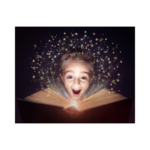Singing Through The Three Weeks
Rabbi Abba bar Kahana opened his discourse with the verse, “Let out your voice, O daughter of Gallim.” (Isaiah 10:30) Isaiah said to Israel, “Rather than you should utter songs and praises before idols, sing with a joyous voice the words of Torah, sing with a joyous voice in the synagogues.” “O daughter of Gallim,” as the waves are conspicuous in the sea, so are the patriarchs in the world. (introduction to Midrash Eichah I)
I must admit that I am more familiar with the crying of Lamentations than with the joyous voice described by Isaiah and Rabbi Abba. The “hot” Jewish album of 1966 introduced the famous ‘Shmelkie’s Niggun,” which is still sung throughout the Yeshiva world. I recall that two of my sisters repeatedly listened to a song on the album that had the words, “The Navi cried, the Navi died, but his words live on.” My sisters loved the song, but I wondered aloud why they preferred the sad song over the joyous ‘Niggun.’ I have been wondering ever since. Why do we seem to prefer to cry Psalms rather than sing them with joy? Why are so many Jewish songs so maudlin? I don’t want to say anything heretical, but even ‘Oifen Pripetchik,’ seems depressing to me.
I still receive the same response that I got from my sisters more than forty years ago: “We are sad because the Beit Hamikdash was destroyed.”
Rabbi Abba rejects that answer. He insists that we end up singing sad songs and lamentations because we did not sing with a joyous voice.
I imagine that in Rabbi Abba’s yeshiva they did not spend the Three Weeks mourning and crying, but singing their learning and prayers with extra joy.
Our way does not seem to work very well. Anyone care to join me in trying Rabbi Abba’s approach?
Author Info:
Learn & discover the Divine prophecies with Rabbi Simcha Weinberg from the holy Torah, Jewish Law, Mysticism, Kabbalah and Jewish Prophecies. The Foundation Stone™ is the ultimate resource for Jews, Judaism, Jewish Education, Jewish Spirituality & the holy Torah.




